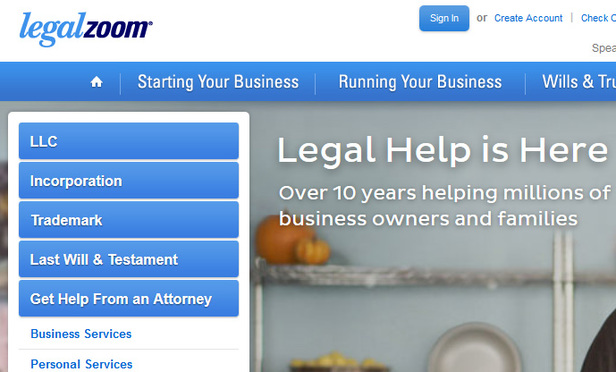Earlier this year, North Carolina enacted legislation that specifically addressed whether a company providing interactive software services that allows generation of a legal document based on input, was practicing law. The legislation excludes such activity from the definition of “the practice of law” provided that certain criteria were met, including the need for review by a lawyer of the template document, and certain licensing or registration requirements. Apparently, this arose from the settlement of the regulatory case in North Carolina against LegalZoom. Commentary on the legislation notes that companies may choose to now operate in states that don’t have such terms or regulatory requirements. The tension remains whether or not this type of legislation is in the public interest and for the protection of clients, or whether it is a protectionist measure to protect lawyers. The software product is different from the legal form sellers, who simply sell a form as-is and are not allowed, at least in this jurisdiction and more generally, to provide assistance in filling out the forms. All of this plays out against the environment where a majority of those who need or require legal services are choosing to act on their own rather than engage a lawyer—often referred to now as the “access to justice” issue.
These companies are also moving beyond forms and interactive software to establishment of a network of lawyers. The business model is, generally speaking, that a client pays a fee to the company for a defined set of services, and the client is matched to a lawyer in a jurisdiction where the lawyer is licensed to practice (presumably in the client’s jurisdiction). Once the work is concluded, the entire fee is transmitted to the lawyer, and the company is paid a “marketing fee” by the lawyer. The model essentially describes Avvo, and several states have now issued ethics opinions (not necessarily binding) that this model violates professional rules of conduct against fee splitting, supervision over trust funds, and paying to procure a representation. Companies like Avvo are for profit and not licensed, contrary to, for example, bar association lawyer-referral networks. In this case, the issue may not be as direct as client protection versus lawyer protection, since it is arguable that this model actually provides work for lawyers. However, it is a non-traditional model and, as noted, implicates certain ethics rules that need to be addressed and accommodated.
This content has been archived. It is available through our partners, LexisNexis® and Bloomberg Law.
To view this content, please continue to their sites.
Not a Lexis Subscriber?
Subscribe Now
Not a Bloomberg Law Subscriber?
Subscribe Now
LexisNexis® and Bloomberg Law are third party online distributors of the broad collection of current and archived versions of ALM's legal news publications. LexisNexis® and Bloomberg Law customers are able to access and use ALM's content, including content from the National Law Journal, The American Lawyer, Legaltech News, The New York Law Journal, and Corporate Counsel, as well as other sources of legal information.
For questions call 1-877-256-2472 or contact us at [email protected]



